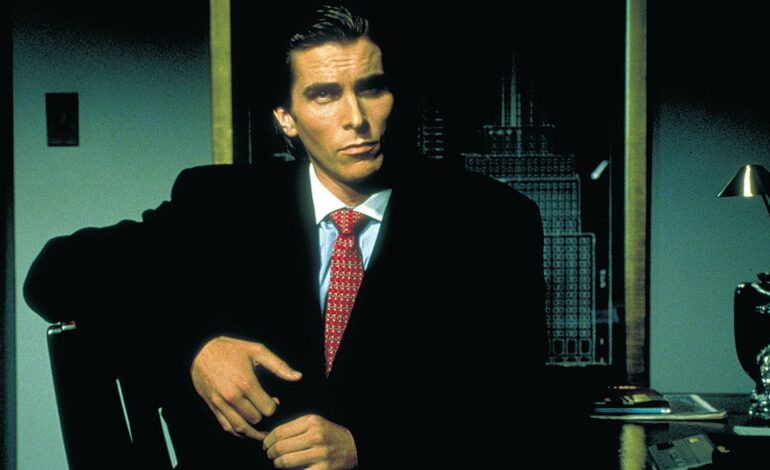Why Are Wall Street Bros Idolizing Patrick Bateman? Director Speaks Out

Let’s unpack this without trying too hard. In a recent interview, Mary Harron, the director of the cult classic “American Psycho,” expressed her bewilderment over the trend of Wall Street types idolizing the film’s infamous antihero, Patrick Bateman. For those who might need a refresher, Bateman is not exactly your go-to role model. He’s a murderous, narcissistic investment banker whose chilling demeanor and obsession with materialism paint a rather grim picture of 1980s excess. Yet here we are, in 2023, with some finance bros seemingly taking notes from Bateman’s playbook. Honestly, what’s the deal with that?
Harron’s comments, shared during a recent panel discussion, highlight a growing cultural phenomenon where the lines between satire and admiration blur. “I’m mystified by it,” she stated, reflecting on how some viewers miss the darker, cautionary elements of her film. “He’s not meant to be someone to emulate.” It’s a sentiment echoed by critics and fans alike who see Bateman as a representation of what happens when capitalism goes unchecked, rather than a figure to aspire to.
The director’s concerns resonate with broader societal issues, especially as we witness a resurgence of interest in 1980s aesthetics and ideologies. The “Greed is Good” mentality, which Bateman epitomizes, seems to be making a comeback, particularly among those navigating the high-stakes world of finance. A 2021 survey found that a significant portion of young professionals in finance view their industry as a path to personal wealth above all else, reinforcing the idea that some are channeling their inner Bateman without realizing the implications.
Of course, this isn’t the first time we’ve seen a character like Bateman get misinterpreted. From Tony Montana to Gordon Gekko, the glamorization of antiheroes in pop culture often leads to a strange admiration that overlooks their moral failings. But with Bateman, it feels particularly jarring because the film was crafted as a critique of capitalism and consumerism. As Harron pointed out, it’s crucial to remember the context: “American Psycho” is a horror story disguised as a dark comedy, designed to shock and provoke thought, not to serve as a lifestyle guide.
In the age of social media, where memes and soundbites reign supreme, it’s all too easy for the nuanced messages of films to get lost in translation. The irony is thick: while Bateman’s character indulges in shallow pursuits and grotesque behavior, the very culture he criticizes seems to be celebrating him. As Harron continues to ponder this bizarre trend, one can’t help but wonder if the message of her film has gotten lost in the noise of Wall Street bravado.
So, what’s the takeaway here? If you’re out there idolizing Patrick Bateman, it might be time to hit pause and consider what that says about your values. Just a thought, but maybe we should be more concerned about the lessons we’re picking up from fiction. Anyway, that’s the deal. Do with it what you will.
Sources: Celebrity Storm and New York Post, Variety, The Guardian
Attribution: ©Lions Gate/Courtesy Everett Collection (Creative Commons)




